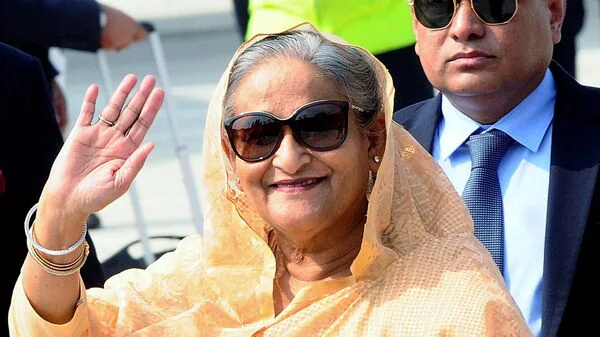On August 5, Prime Minister Sheikh Hasina, 76, resigned and fled the country in an army helicopter amid widespread unrest. Sheikh Hasina is known for labeling anyone she perceived as a threat or dissenter as "Razakar". In Bangladesh, "Razakar" is a deeply offensive term. Although it means volunteers, it refers to those who supported the Pakistani military’s efforts to suppress the 1971 Bangladesh Liberation War, often accused of heinous crimes.
As the daughter of Sheikh Mujibur Rahman, Bangladesh's founding father, Hasina led a pro-democracy uprising that ousted military ruler Hossain Mohammad Ershad in 1990. She first became prime minister in 1996 and again in 2009, overseeing significant economic growth while becoming increasingly autocratic. Her tenure saw crackdowns on free speech, dissent, and opposition. Hasina’s rule was marked by the use of security forces, including the notorious Rapid Action Battalion, accused of abducting and killing opposition members and rigging elections. The judiciary, media, and other institutions were compromised under her leadership. Critics argue she controlled the media to maintain power and depicted her supporters as the rightful heirs of the country's independence, while branding dissenters as traitorous.
During a news conference on July 14, Hasina was asked about the student protests against job quotas that had been ongoing for over a week. She dismissively remarked, “If the grandchildren of freedom fighters don’t receive [quota] benefits, who will? The grandchildren of Razakars?” Her comments ignited immediate protests. Students felt her remarks unfairly dismissed their efforts to address the “unfair” quota system in government jobs, which reserved about 30 percent of positions for the descendants of freedom fighters of the 1971 liberation movement. Within hours, students began protesting, marching through Dhaka University’s campus, and chanting provocatively: “Who are you? I am Razakar.”
Hasina’s harsh response involved her party’s student wing, the Bangladesh Chhatra League (BCL), and police, leading to violence that resulted in six deaths on July 16. Over the next four days, more than 200 people, mostly students and citizens, were killed as police and BCL fired live ammunition. Hasina’s focus on property damage over the loss of life further fueled the anger, turning initial demands for reforms into calls for her resignation.
Hasina previously said she was cracking down on corruption, but critics argued there was no evidence that the government was ever serious about tackling the issue. Furthermore, Hasina tarnished the legacy of Bangladesh’s liberation war by distorting its narrative. “The student protesters were so angered by Hasina labeling them as ‘Razakar’ that they began using the term themselves as a form of protest against her divisive tactics for political gain,” Rahman said. “Ultimately, this contributed to her downfall.”









